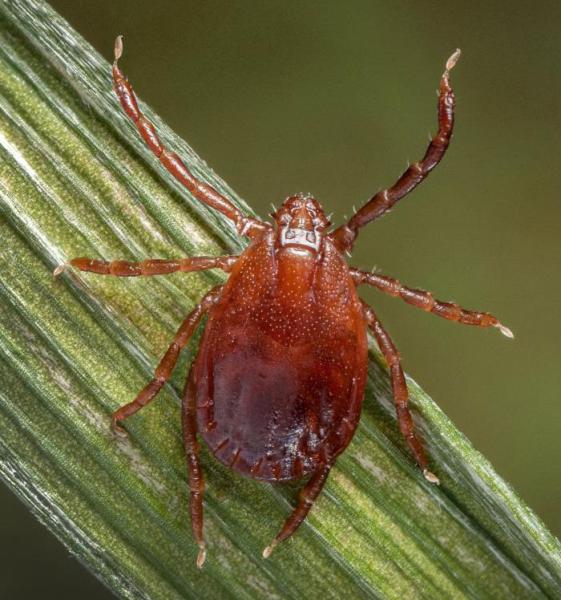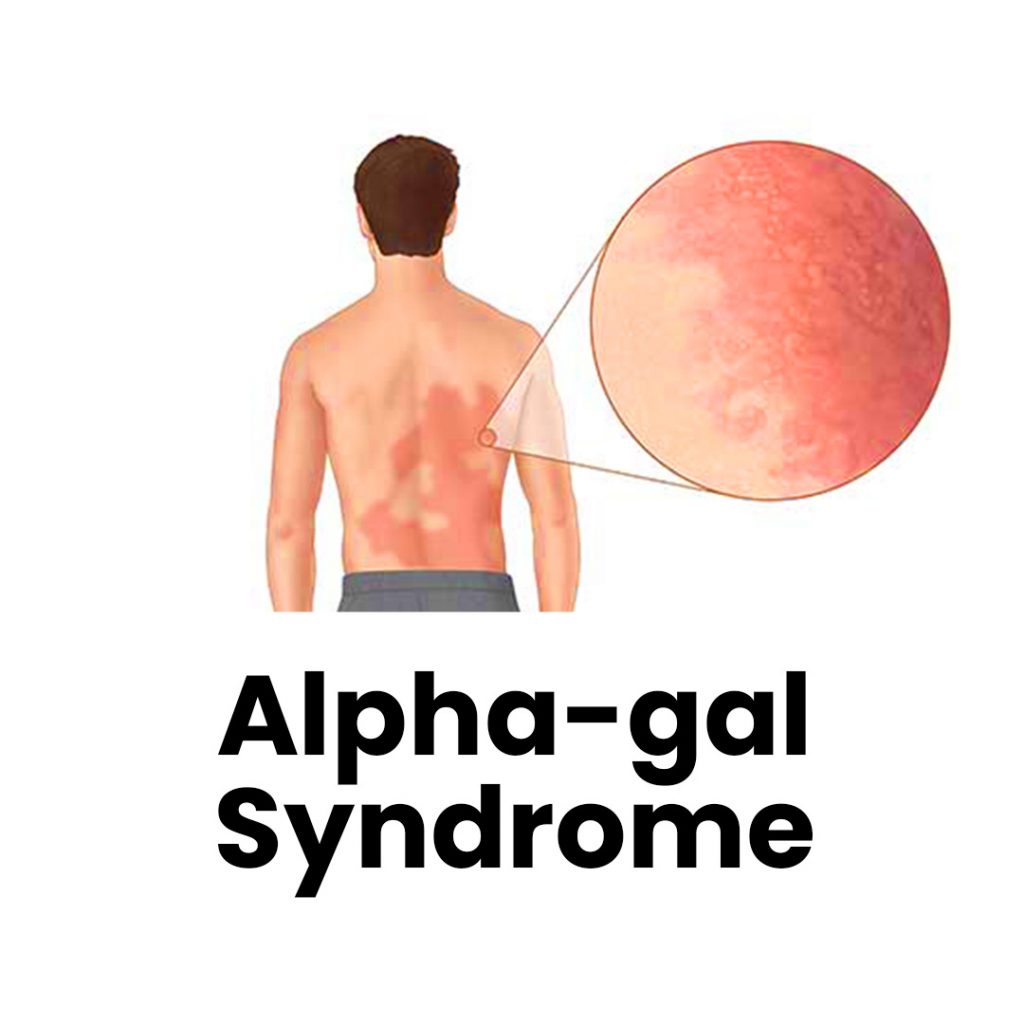Alpha-gal Syndrome
Alpha-gal Syndrome: Navigating the Landscape of Tick- Borne Allergy
In our pursuit of comprehensive knowledge, we’ll examine the details of Alpha-gal
Syndrome (AGS), a fascinating yet challenging tick-borne allergy. Drawing inspiration from
the CDC valuable information, let’s explore details of AGS.
What is alpha-gal?
- Alpha-gal (galactose-α-1,3-galactose) is a sugar molecule found in most mammals.
- Alpha-gal is not found in fish, reptiles, birds, or people.
- Alpha-gal can be found in meat (pork, beef, rabbit, lamb, venison, etc.) and products
made from mammals (including gelatin, cow’s milk, and milk products).
Understanding Alpha-gal Syndrome
What is alpha-gal syndrome (AGS)?
Alpha-gal Syndrome (AGS) is an serious allergic reaction to a carbohydrate molecule called alpha-gal, found in red meat and products derived from mammals. This unique allergy is triggered by the bite of the lone star tick (*Amblyomma americanum*), which can introduce alpha-gal into the human bloodstream. AGS is also called alpha-gal allergy, red meat allergy, or tick bite meat allergy.
According to CDC report, it showed that between 2010 and 2022, more than 110,000 suspected cases of AGS were identified. However, cases of AGS are not nationally notifiable to CDC, so it is not known how many cases of AGS exist in the United States. Additional data and research are needed to understand how many people are affected by this condition.
What are some of the signs and symptoms of AGS:
- Hives or itchy rash
- Nausea or vomiting
- Heartburn or indigestion
- Diarrhea
- Cough, shortness of breath, or difficulty breathing
- Drop in blood pressure
- Swelling of the lips, throat, tongue, or eye lids
- Dizziness or faintness
- Severe stomach pain
- Symptoms commonly appear 2-6 hours after eating meat or dairy products, or after
exposure to products containing alpha-gal (for example, gelatin-coated medications). - AGS reactions can be different from person-to-person. They can range from mild to
severe or even life-threatening. Anaphylaxis (a potentially life-threatening reaction involving
multiple organ systems) may need urgent medical care. - People may not have an allergic reaction after every alpha-gal exposure.
- If you think you may have AGS go talk to your healthcare provider.
In severe cases, AGS can lead to anaphylaxis, a potentially life-threatening allergic reaction.
Guarding Against AGS: Tick Prevention and Awareness
Tick Habitat Avoidance
Steering clear of tick habitats, such as wooded and brushy areas with high grass and leaf
litter, is crucial. Awareness of your surroundings is your first line of defense.
Tick Repellents
Employing EPA-registered insect repellents containing DEET, picaridin, or other approved
ingredients forms a protective shield against tick bites. Regular application enhances your
resilience against AGS.
Protective Clothing
Wearing long sleeves, pants, and closed-toe shoes provides an additional barrier,
minimizing skin exposure and lowering the risk of tick attachment.
Tick Checks
Regularly inspecting your body, clothing, and pets after outdoor activities is paramount. Early
detection and prompt removal of ticks contribute significantly to AGS prevention.
After you come indoors
- Check your clothing for ticks.
- Examine gear and pets for ticks.
- Shower and perform a thorough tick check.
Seeking Medical Attention
If you suspect AGS or have experienced a tick bite, seeking medical attention promptly is imperative. Blood tests are conducted to detect specific antibodies, facilitating early diagnosis and management.
Can I get AGS from a tick bite?
Alpha-gal syndrome is primarily associated with lone star tick (shown here), but other kinds
of ticks have not been ruled out.
- AGS is associated with tick bites. Evidence suggests that AGS is primarily associated with the bite of a lone star tick in the United States, but other kinds of ticks have not been ruled out. Other tick species have been connected with the development of AGS in other countries.
- More research is needed to understand the role ticks play in starting this condition, and why certain people develop AGS.

What should I do if I have AGS?
- AGS should be managed under the care of an allergist or other healthcare provider.
- Many foods and products contain alpha-gal. You will need to work with your healthcare provider to understand which products you need to avoid.
- Prevent tick bites. New tick bites may reactivate allergic reactions to alpha-gal.
I have AGS, what foods and products do I need to avoid?
- Not all patients with AGS have reactions to every ingredient containing alpha-gal.
- Most healthcare providers recommend patients with AGS stop eating mammalian meat (such as beef, pork, lamb, venison, rabbit, etc.).
- Depending on your sensitivity and the severity of your allergic reaction, your healthcare provider may also suggest you avoid other foods and ingredients which may contain alpha-gal (such as cow’s milk, milk-products, and gelatin).
- Read food product labels carefully.
- Although very rare, some people with severe AGS may react to ingredients in certain vaccines or medications. Talk to your healthcare provider before taking a new medication or receiving a vaccine.
Who can get AGS?
- Most reported cases of AGS in the United States are among people living in the South, East, and Central United States.
- While people in all age groups can develop AGS, most cases have been reported in adults.
Our mission is to empower you with knowledge and tools to safeguard against tick-related threats. Browse through our extensive resources and stay informed for a healthier, tick-resilient life.
Source: CDC: Centers for Disease Control and Prevention

